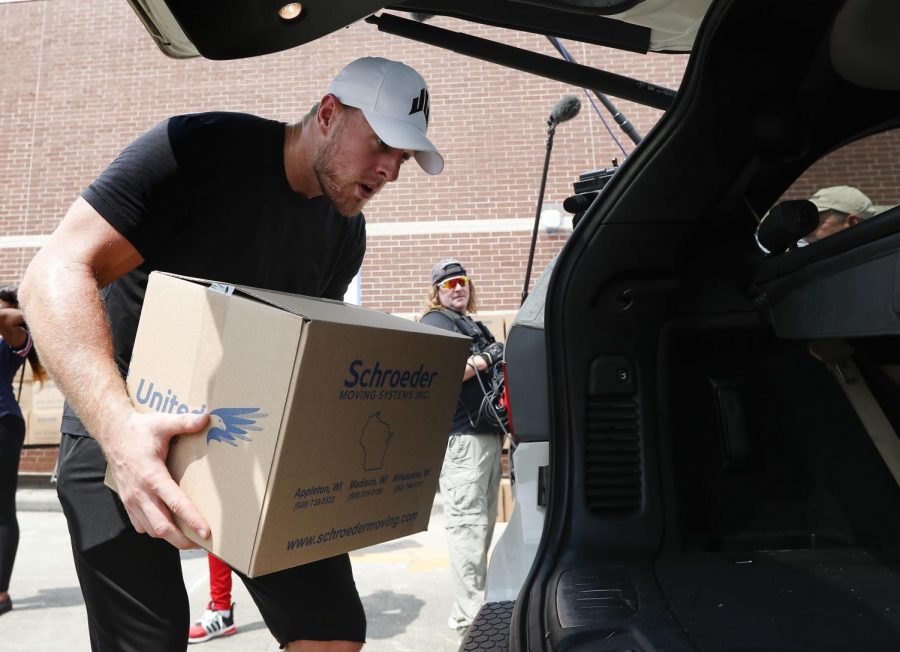*Names in this story have been changed to protect the identity of a minor
“That’s it. That was your last chance,” the doctor said. He faced junior Sarah Nickwell and spoke firmly, his voice lacking sympathy. “I’m admitting you to the Texas Children’s Hospital wing for eating disorders. Your family may go home to get your bags and you can call your teachers to make arrangements, but you cannot go home.” At that moment, Sarah began her summer stay in TCH.
In eighth grade, Sarah developed the eating disorder Anorexia Nervosa, the restriction of dietary needs to feel more in control of life until the body becomes malnourished, and was admitted to the hospital at a height of 5-foot 1 and weight of 69 pounds.
The National Eating Disorders Association found that only up to 28 percent of adolescents with an eating disorder talk to a professional about their eating problems. Experts believe this could be due to denial, shame or failure to recognize symptoms.
“I remember crying because I was in complete denial and I wasn’t willing to change my ways but I wasn’t ready to face the consequences,” Sarah said. “I waited for what felt like hours for a room to be prepared for me, and once one was, my routine started.”
Sarah’s days were spent in a lunch room where meals were presented and where patients were monitored for an hour after eating. Once Sarah was strong enough for activity, she was allowed to walk fifteen minutes a day on a treadmill, lift five pound weights and have visitors, who were scared for her.
“When Sarah told me about her eating disorder, I was completely shocked,” friend Ashley Renee said. “Here was this girl who was nothing but gorgeous in my eyes and I couldn’t understand how she could see anything but that.”
Sarah admits that looking back on the time she spent in this condition was like a nightmare. She recollects looking at other girls seated around the lunch table with her, feeling out of place because they were all so skinny. The National Association of Anorexia Nervosa explained in an article that a person with anorexia can accept with little difficulty that they are very thin but cannot accept the danger of the situation. It is difficult for the ill person to comprehend that the low weight and dieting habits can lead to fatal consequences.
“The scary thing is that my mom has shown me pictures from that time and I honestly didn’t realize how bad things truly were,” she said. “I didn’t realize that I could have truly died. My heart beat was slow, my body temperature and blood pressure were low, I developed premature osteoporosis and it stunted my growth to where I’m behind two years of where I should be.”
Families Empowered and Supporting Treatment of eating disorders, an organization of parents that help eating disorder patients by providing useful information, emphasizes that parents should not give up, even in the difficulty of maintaining normalcy and stabilizing an ill person. Sarah believes that even though much of recovery is re-feeding based, families must come together to watch over the patient, never hovering, but never letting the need to be in control be an excuse to let things spiral out of control.
“As any parent would, I felt panicked when this happened,” Sarah’s mother, Judy Nickwell said. “It’s hard not to feel like I didn’t notice as fast as I should have. When something bad happens in the family, it makes you realize that you are stronger than you thought that you were. I think that in Sarah’s case, all the self-reflection she was forced to do to get better enabled her to look deeper than normal people would to find a source of strength that she didn’t know she had. ”
The National Association of Anorexia Nervosa and Associated Disorders concluded that the fatality rate is higher for anorexia than for any other psychiatric illness. Sarah is one of over 10 million men and women in the U.S who has struggled or is struggling in a life-threatening battle with an eating disorder, according to a study conducted by NEDA.
*If you or someone you know is struggling with an eating disorder, contact Center for Change at 888-779-6516.









